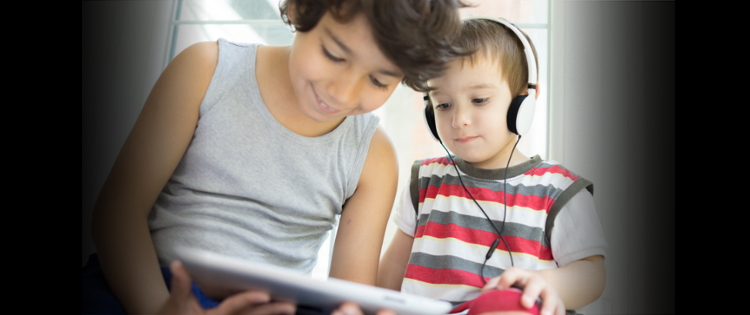
Does Listening to Classical Music Distract Kids from Learning?
Does Listening to Classical Music Distract Kids from Learning? https://mediatrics.com/wp-content/uploads/2017/01/ClassicalMusicAtM.png 750 315 Mediatrics Mediatrics https://mediatrics.com/wp-content/uploads/2017/01/ClassicalMusicAtM.pngQ: I love listening to classical music and believe that it helps me quiet my thinking and focus. I often have it on, even while my 8 and 7-year-olds are doing their homework. My question is, does classical music distract from their learning?
~ Baffled about Bach, Fort McMurray, Alberta Canada
A: This is a great question – and one in which I join you as someone who listens to classical music and Italian opera when studying or writing. Does listening to music or using other media draw focus and cognitive resources (brain power) away from work that you or your kids are trying to do? What we do know is that any media we engage with requires focus and mental processing and has the potential to distract us from the work we are doing. But the medium (the type of media, such as TV, music, video games, etc.) and the content to which we are exposed makes a big difference in how much it distracts.
Studies show that watching a movie or TV show while doing homework results in homework that has more mistakes and takes longer to complete. Listening to songs, even those with lyrics that you know by heart, can sometimes distract from the work at hand so that it is done less efficiently. Interestingly, listening to instrumental and some radio music does not result in poorer quality homework.
One fact to note is that these research studies of media distraction are done as controlled, laboratory experiments, comparing cognitive productivity in a quiet space with no distractions with the same productivity while exposed to music, TV, or other media. The reality of our homes is such that they are not distraction-free research laboratories – there are many environmental distractions, from talking between other family members to street noises, all of which, because of their unpredictability can distract from what one is working on. Music, especially instrumental or classical music, can actually function to create a lower distraction environment than no media at all because it creates a consistent, structured background in which the listener can more easily achieve a “flow state”. Flow is achieving a state of complete focus and absorption in the work and results in greater creativity, increased productivity, and more happiness.
It sounds as though you have found that you work better when classical music is playing, not because it doesn’t distract, but because it distracts less than random environmental sounds. To answer your question about your children, observe their behavior when they are doing homework with the music on and with it off. Are they paying attention to it? Is it distracting them from their work? Or is it functioning as white noise, and blocking out the potentially distracting sounds? If so, choose music that helps them focus on their homework as opposed to taking their attention away from it.
Remember that all music, whether Tchaikovsky or Taylor Swift, is most fully appreciated when you sit down and listen to it, as opposed to just having it on in the background. Share your love of classical music with your kids apart from homework time and let them share the music they enjoy with you. Take them to live concerts and encourage music making of their own, whether it be learning an instrument or singing in the shower. Music communicates emotion and inexplicable human emotions better than any other medium – a wonderful lifelong gift that you can share with your children.
Enjoy your media and use them wisely,
~ The Mediatrician®




